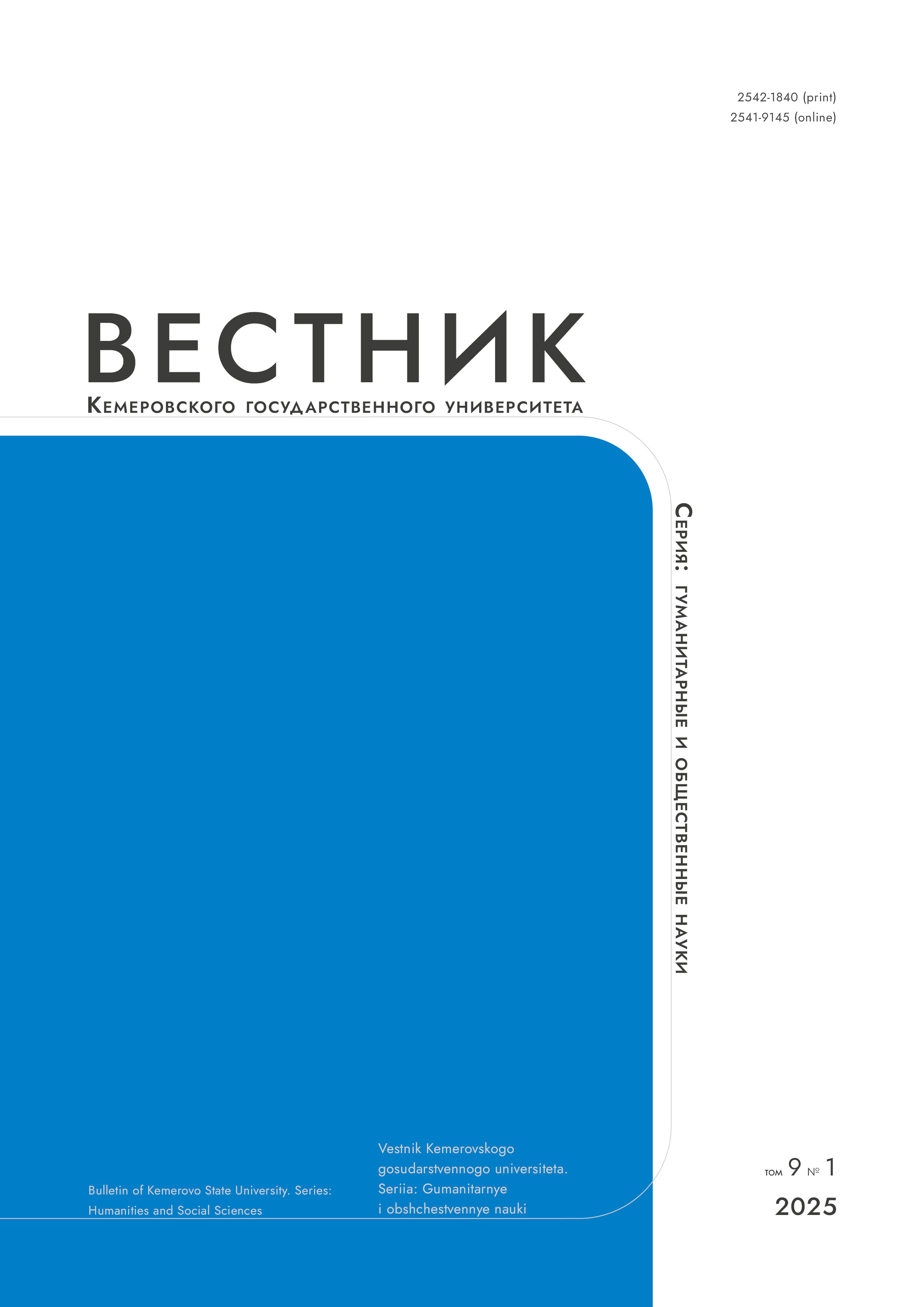from 01.01.2004 to 01.01.2023
Kemerovo, Kemerovo, Russian Federation
Continuity is very important at the intersection of school and higher education. In particular, it concerns the continuity of mathematical analysis at school and university. The school course of basic mathematical analysis brings up mathematical culture and scientific outlook. It is crucial for higher education in physics, mathematics, and information technology. To structure the course of mathematical analysis and prevent possible difficulties, the university professor needs to actualize the existing knowledge and skills in first-year students by providing the continuity of theory and practice. The article describes the methodological approach to continuity for some mathematical formulas in the university course of mathematical analysis, i.e., the two-degree summation formulas of Newton’s binomial formula of reduced multiplication and the formula of the sum of infinitely decreasing geometric series. In algebra and mathematical analysis, these formulas are used to work with polynomials and analytic functions. These formulas and their generalized versions allow university students to use more rational and creative methods of mathematical analysis for calculating limits of sequences and functions. They provide a universal method that can be applied to problems of the theory of limits in the course of mathematical analysis at school and university. The case is an example of effective continuity of mathematical education in the school-university system.
continuity, mathematical analysis, Newton’s binomial, infinite geometric progression, Taylor-Maclaurin formula, limit of function
1. Semina I. S., Uvarova N. N. Continuity of school and university education in modern conditions. Vocational education and labor market, 2015, (9-10): 32–33. (In Russ.)] https://elibrary.ru/vvvsyt
2. Kovaleva G. I., Milovanov N. Yu. Ways of ensuring continuity of study of concepts of mathematical analysis between school and university. The world of science, culture and education, 2017, (1): 56–57. (In Russ.)] https://elibrary.ru/xxjoaz
3. Podufalov N. D. Scientific heritage of K. D. Ushinsky and problems of modern didactics. Pedagogy, 2023, 87(4): 5–17. (In Russ.)] https://elibrary.ru/jnovmn
4. Kapkaeva L. S., Tagaeva E. A. Conditions for the implementation of the continuity of teaching the principles of mathematical analysis at school and university. Modern problems of mathematics and mathematical education: Proc. Intern. Sci. Conf., St. Petersburg, 18–20 Apr 2023. St. Petersburg: Herzen Universiry, 2023, 67–72. (In Russ.)] https://elibrary.ru/uplkbb
5. Kaparova R. M., Melathan U., Esengaliev S. T. Continuity of mathematical analysis at school and in pedagogical university. Global challenges – scientific solutions II: Proc. Conf., Antwerp, 14 Oct 2020. Leipzig: Center of Innovative Development "DARA", 2020, 373–379. (In Russ.)] https://elibrary.ru/nzomjv
6. Shastun T. A., Glazev V. V. The problem of continuity in teaching mathematics: Approaches to a new educational paradigm. Pedagogical Journal, 2020, 10(2-1): 70–77. (In Russ.)] https://doi.org/10.34670/AR.2020.45.49.008
7. Milovanov N. Yu. Graphic interpretation of mathematic facts as the condition of succession of mathematical analysis teaching at school and higher school. The Edge of Cognition, 2013, (1): 72–79. (In Russ.)] https://elibrary.ru/qavjyj
8. Salakhov A. Z. Conditions for ensuring the continuity of school and university course of mathematical analysis. Izvestia DSPU. Psychological and Pedagogical Sciences, 2011, (2): 119–123. (In Russ.)] https://elibrary.ru/ocrgwn
9. Ferenchuk L. V. Problems of continuity in teaching mathematics between school and university. Teorija nauki, 2013, (5): 20–25. (In Russ.)] https://elibrary.ru/wwxxtf
10. Chaplygin V. F. Basic concepts of analysis in the school course of mathematics. Some methodical approaches. Yaroslavl Pedagogical Bulletin, 2003, (1): 125–131. (In Russ.)] https://elibrary.ru/pyayyr
11. Pokrovskiy V. P. Methodology of teaching mathematics: Functional content-methodical line. Vladimir: VlSU, 2014, 143. (In Russ.)]
12. Alimov Sh. A., Kolyagin Yu. M., Tkacheva M. V. et al. Algebra and basic mathematical analysis in grades 10–11. Moscow: Prosveshchenie, 2016, 463. (In Russ.)]
13. Nikolsky S. M., Potapov M. K., Reshetnikov N. N. et al. Algebra and basic mathematical analysis. Grade 11. Moscow: Prosveshchenie, 2014, 464. (In Russ.)]
14. Kolmogorov A. N., Abramov A. M., Dudnitsyn Y. P. et al. Algebra and basic mathematical analysis. Grades 10–11. Moscow: Prosveshchenie, 2016, 384. (In Russ.)]
15. Mordkovich A. G. Algebra and basic mathematical analysis. Grades 10–11. Moscow: Mnemozina, 2009, pt. 1, 424. (In Russ.)]
16. Kiselnikov I. V. Teaching fundamental concepts of mathematical analysis in a school mathematics course based on their imaginative representation. International Research Journal, 2022, (1-3): 61–67. (In Russ.)] https://doi.org/10.23670/IRJ.2022.115.1.082
17. Tagaeva E. A. Theoretical foundations of teaching senior classes students solving problems in algebra and mathematical analysis in terms of continuity between school and university. Humanities and Education, 2016, (3): 58–61. (In Russ.)] https://elibrary.ru/wmbumr
18. Alekseenko A. S., Likhacheva M. V. Studying the limit in the school course of mathematics. Problemy pedagogiki, 2017, (4): 25–30. (In Russ.)] https://elibrary.ru/ykwaip
19. Demidovich B. P. Collection of tasks and exercises in mathematical analysis. 19th ed. St. Petersburg: Lan, 2017, 623. (In Russ.)]
20. Kudryavtsev L. D. Course of mathematical analysis in 3 volumes. 6th ed. Moscow: Jurajt, 2023, vol. 1, 703. (In Russ.)]
21. Fikhtenholtz G. M. Fundamentals of mathematical analysis. Moscow: Nauka, 1968, vol. 1, 440. (In Russ.)]
22. Fikhtenholtz G. M. Fundamentals of mathematical analysis. Moscow: Nauka, 1968, vol. 2, 464. (In Russ.)]
23. Konnova L. P., Stepanyan I. K. Mathematical analysis is easy! Moscow: Prometei, 2023, 1256. (In Russ.)] https://elibrary.ru/prdnyp
24. Weinstein I. I., Manushkina M. M. On one method of delivering "Limit of a function" topic. Siberian Pedagogical Journal, 2011, (5): 64–69. (In Russ.)] https://elibrary.ru/peuqaj
25. Chubarikov V. N. A generalized Newton binomial formula and a sum formula. Chebyshevskii Sbornik, 2020, 21(4): 270–301. (In Russ.)] https://doi.org/10.22405/2226-8383-2020-21-4-270-301


















